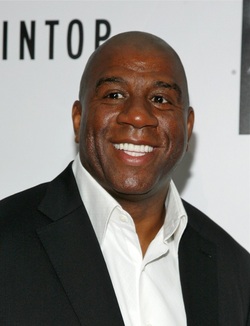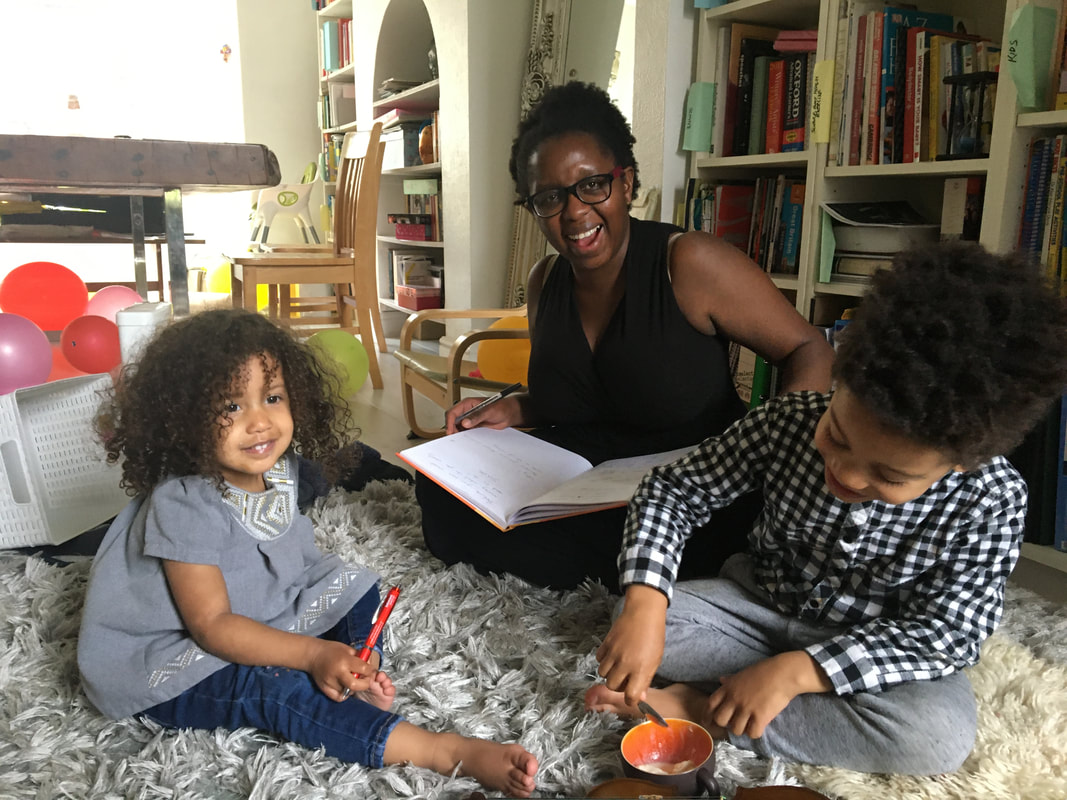|
Building on the last post on 7 things that hold black children back from succeeding. This is the current Economic status of black people in the UK relative to other groups:
ASSETS
On home ownership According to .gov.uk:
On pensions assets: According to a January 2020 report by the People Pension, compared to White ethnic groups,
The average gap between a female pensioner from an ethnic minority group and male pensioner from white ethnic groups is 51% (half). This figure is 27% for an ethnic minority male pensioner. The average ethnic minority pensioner has £3,350 less in annual pension income. Ethnic minorities are also less likely to qualify for auto-enrolment into a work place pension because they are more likely to earn less than the auto-enrolment threshold of £10,000. INCOME According to gov.uk: In the year ending March 2019, the median annual household income in each quintile before housing costs were paid was:
If we look at the bottom two income quintiles, that is the lowest 40% of income earners,
These figures are before housing costs. The picture changes a little bit after housing costs but I chose to present the ‘before housing costs’ picture because there is a degree of discretion with regards to how much a household decides to spend on housing. While there are income disparities that will feed the gap between the assets of the rich and the assets of the poor, I feel as though the reasoning behind the asset differential is very basic and needs further exploration. On job security: Do ethnic minorities just work less and as a result earn less? No! According to gov.uk:
Based on these stats, the employment rate for black people is 8 points lower than the average for the population and 15 points lower than for Whites. In addition, it’s worth noting that Black people and other minorities are more likely to be self-employed, be on zero hours contracts and are generally more likely to be employed in less secure lower income jobs including as part of the gig economy. Two things stand out as definitely missing:
The UK doesn’t have an identical history to the US and certainly I don’t think UK mortgage lenders discriminate according to race directly or indirectly but if someone thinks they do, I’d love to hear their story. Remittances are a key component of economic growth in Africa. According to Pew Research, "money sent by the African diaspora to their home countries in sub-Saharan Africa reached a record $41 billion in 2017...a 10% jump in remittances from the previous year", another source suggests $46 billion was remitted in 2018, that would be the official figures but billions more are remitted via unrecorded channels. Official development aid to Africa was just shy of $52.8 billion in 2017 (OECD 2019 statistic). Provided this money isn't all being used for consumption, wealth accumulation by Africans is underestimated if we look purely at wealth held by the diaspora within the countries they live. In addition, after discussing the issue of low rates of home ownership with my African peers other factors to consider include:
Social mobility According to research from the University of Manchester,
FACTORS THAT COULD HOLD BLACK PEOPLE BACK When it comes to discrimination in the labour market, some of the same things that lead to targeting or discrimination in the formative years (as described in my previous post) can also adversely affect the likelihood of black people getting well paid jobs:
So there you have it. This is a summary of the current wealth and income stats for black people in Britain. I think it raises a lot of questions. I would love for people to contact me and leave a voice message or a note at katsonga.com/coach or as a comment on this post explaining what they think has helped them succeed or what they believe is holding them back from progressing to higher levels in their career and in building wealth. Heather p.s. subscribe to my podcast and ask me any money question, HERE - do it now!
0 Comments
I thought it would be fitting to end the 2020 series of The Money Spot podcast with a series on the Economics of being black. The issue I would like to explore first is a list of things that could hold a child back before they are even 18.
Where possible, I will depend on UK studies and statistics but if that’s not possible reference will be made to US studies where much more research on race tends to be available.
1. Name
Having a name that is perceived as “different” may be a factor that exacerbates a black child’s feeling of otherness, of being different to the mainstream. In the worst case, it may lead to teasing or just feeling discomfort and insecurity with what might seem like innocent questions from teachers, like “how do you say your name?” I’ll talk more about names in my piece about what holds black adults back. Personally, our desire for our children not to be discriminated against in mainstream British society was a key consideration in name selection. We want them to blend to the extent possible and didn’t feel that name was an issue they should need to deal with in addition to everything else. 2. Hair Is there an issue more contentious? My son noticed the difference in his hair before he mentioned that his colour was different to that of everyone else in his class. There are many anecdotal examples of black children being treated in an unfair way at school on account of their hair, for example:
But, while a name and hair, in addition to skin colour may add to a feeling of being different, there are real and recent statistics from the Social Market Foundation and other research organisations to show that black children are discriminated against at higher rates: 3. The perception of being threatening There is a perception and stereotype of being threatening which especially haunts black boys. In studies, black boys as young as 5 years old have been perceived as more threatening compared to similar aged white boys which is a scary fact. This has been elicited with tests of association of faces and objects like guns or puppies rather than by asking directly. And where as being “tall and dark” would give a white boy advantages with perceptions of stature, strength and athleticism – for a black boy the exact same tallness and darkness may only serve to make them appear more threatening and with that all the disadvantages: more regular police stop-and-searches and fewer opportunities. This sentiment is my own, rather than from elsewhere but it is something that recently occurred to me as a risk. 4. At-school and In-class discrimination The Social Market Foundation reports that “discrimination in education frequently takes place outside of the syllabus. There are a range of institutional practices that underpin Black students’ exclusion and, ultimately, their educational attainment.” For example:
So, unfortunate as it is, black children especially black boys face discrimination at much higher rates at school. I haven’t found any research to back it up but a friend who works in the field told me that some recent studies suggest that black boys are ahead of all other ethnic groups on entering school but within a year they are behind others because of the poor engagement they receive. 5. Low expectations Akala in his autobiographical, “Natives: Race and Class in the Ruins of Empire” recounts how he was a gifted child, highly intelligent with a GCSE reading age by the time he was 7 and yet, he was placed in a class with children with learning difficulties. It took his (white) mother advocating for him and speaking up for this to change. And in her time on Desert Island discs Sonita Alleyne, the first black Master of a Cambridge college admits that exactly the same thing happened to her when she arrived from Barbados as a young child. Placed in the special needs class, her mum walked into school and explained that her daughter’s accent wasn’t a sign or symptom of being stupid. The most frustrating thing about these examples is that similar things are happening to many black children today and they don’t have an advocate. What of those children that reveal they want to be a doctor, lawyer or astronaut that are told to be realistic and guided towards nursing, hair dressing, plumbing and other manual jobs. Or towards sports and more artistic jobs like music – yes, there are more examples of black people succeeding in these fields but this is simply because you can’t pretend the boy or girl who came first in the 200m sprint actually didn’t. If nurtured correctly there’s nothing to stop black children excelling in any and every field. Further, many black children up and down Britain simply assume it’s “stupid” or “unrealistic” for them to aim for Oxford and Cambridge and there is no one there telling them otherwise. Conversely, the majority of those in private schools assume it’s a given that they are expected to apply to the top universities. Not long ago women had many of the same challenges – in her time on Desert Island discs retired surgeon Averil Mansfield (born in 1937) says her mum told her to lie she wanted to be a nurse rather than admit she wanted to be a doctor to avoid the mockery. Any girl can say they want to be a doctor now and no one would bat an eyelid and that is the position I would love all disadvantaged children and black children specifically to get to. 6. Poverty People can live in a vicious cycle of poverty from which they struggle to escape. What proportion of black children live in poverty? The Social Metrics Commission found that almost half of people living in a family in the UK where the head of the household is black are in poverty. This compares with 19% or about a fifth for white people. This means black-headed households in the UK are 2.5 times more likely to live in poverty than their white counterparts. Poverty comes with many disadvantages that you can probably list yourself, a few that are commonly discussed in the press include:
These are example economic factors but poverty, of course, also has negative social consequences, living in an economically deprived area may mean increased exposure to crime etc. According to research by the University of Manchester, “a fifth of its Black African, Black Caribbean, and Arab populations live in the country’s most deprived neighbourhoods compared to 8% of the white British population.” I will tackle “social mobility” in my next instalment, for now it is enough to know that many more black children than white children are living in poverty and therefore do not have access to opportunities taken for granted by middle class and more well off children. 7. Single parent home This data is a little old (from 2007) but is unlikely to have changed much so I will use it. According to a Metro article, “48% (almost half) of black Caribbean families have one parent, as do 36% (a third) of black African households.” This figure is 10% for Indians (and marginally higher for those of other South Asian background), 15% for the Chinese and 22% (a fifth) for whites. 90% of single-parent families are headed by mothers. Children who grow up without their biological father are more likely to be
I don’t want to stereotype the single parent with lots of dreary stats but suffice it to say having to manage as a single parent according to the data tends to exacerbate poverty – which stands to reason because one person equals fewer resources including services like washing, cooking etc rather than financial resources. It may also mean the child has less access to parental support for homework and possibly other emotional needs. In summary, before a black child is even a teenager they may face major challenges with their development because they are:
If ALL school teachers could treated ALL children like they are special and going places regardless of race so much progress could be made in erasing educational inequalities between the races. And over the long run, erasing wealth inequality. Heather p.s. subscribe to my podcast and ask me any money question, HERE - do it now!  I’m just going to come out and say it: I think too many men prioritize cars over so many other things that are needed. And, because men generally have a bigger say in how the household budget is divided between different priorities, money goes towards nice cars over other things like private education or that pretty new kitchen or bathroom that the wife wants or even before buying a house. I have had the discussion on cars, houses and spending with so many friends, so many times. I don’t know why I am obsessed with property but I love to know prices in different areas even when I’m not buying.You will often find me pulling out my phone as I pass down a random street to see what prices are like in that area. So, as you do, we went down to visit a friend and I pulled out my phone to check prices in their area. I wasn’t secretive about it. I started asking if they were planning on buying in the area; if they had started saving for the deposit, etc. etc. It was one of my close friends so I’m interested in her family’s financial success. They said they did want to buy but hadn’t saved for the deposit yet or set a plan for saving that deposit. That’s all well and good but a few weeks later the husband was debating which upmarket car to drive. Go figure. Yes, we all like nice things but if we plan and have a proper vision we can build a significant wealth base without having to forego all nice things. Unfortunately this means you might have to live with more standard things in the short term.  What’s the point in leasing a luxury car – BMW, Mercedes, Audi, etc. – if you don’t own your home? In many parts of the world buying now is better than buying later because house prices tend to rise faster than wages. I have another friend who spent his first bonus from work on a brand spanking new Mercedes Benz only to tire of it a year later. Cars go down in value the moment you buy them. They are not a real investment. Yes, I will admit I once bought a new car myself and although I don’t regret it, I doubt I’ll do that again any time soon. I bought it outright (no ongoing payments) and I had my property portfolio already going so I convinced myself I deserved a reward. Would I make the same decision again? In hindsight, probably not but I’m glad I don’t have an outstanding debt to remind me of my not-so-great decision. I could have paid a deposit on another house with that money! Uuuurrrgh Anyhow, the point I am trying to make here is that, if you or your partner are obsessed with cars, this love could keep you in the rat race a whole lot longer than you need to be. If you invest wisely you can have your fast car and an investment portfolio that generates all the money you need to pay for your lifestyle. Plan now. Invest now. Have more options later.  Want to Build a 6-Figure Beauty Business from the comfort of your sofa? Then my course is designed for YOU! "Beauty" includes a WIDE range of products from the not so obvious non-perishable foods and crafts to the more obvious hair, makeup, fashion, health & fitness.  One of my friends posted a very interesting status update on Facebook: "Why is it that some people in Malawi feel like it’s a crime to have a good life or have good things? If one wants to spend their money buying expensive shoes, so be it [it’s their money], [if they want to own a] Range Rover although they stay in a rented house [it’s their business], and if one wants to build a mansion so be it, if it makes you happy! Don’t plan other people’s lives for them! I just saw a certain post and it made me sad! Priorities differ good people!" [Text in square brackets has been translated to English (from Chichewa) for accessibility] Although I agree with the general sentiment that people should spend in any way they want to, I personally think some spending decisions are foolish and very myopic. Less than 60 seconds later, I happened upon this post: Lack of Saving Culture – Biggest Challenge Facing Malawian Entrepreneurs: (says Hitesh Anadkat of First Merchant Bank, Malawi) “In my view the biggest challenge Entrepreneurship faces in Malawi is our savings culture. Actually it is the ‘lack of savings’ culture. I would argue that if we look at the whole world, in 95% of the cases, the capital to start entrepreneurial businesses came from individual or family savings. If you have zero money, it is unlikely a bank will lend you 100% of your requirements. In almost every case you need to show seed capital. This saving culture has to apply to families who want to establish themselves. In my culture [ethnic Indian], most of us do not spend anywhere near what we earn. After basic needs are provided for, the rest goes to saving or businesses for future generations.  When families are starting out they are very careful with their money. Typically, you will have cases where parents and three or four brothers are living under one roof to save money. This is certainly how my father grew up in India. Even though you have money, you do not spend it on new cars, or eating out, or expensive holidays. The family has to realize that if they want the family to become long term players in the business world, or want to educate their children, or feel secure in life, they have to save. They have to sacrifice short term pleasure for greater long term gains. It is because I, my father and his father before me saved, that we had the money to start FMB (First Merchant Bank) and other businesses. We only pay a small percent of our income as dividends and the rest is saved in the company. But even out of the dividends, we save and invest most of this money. My father bought his first Mercedes when he was 56 years old. This was second hand. At this time, he could have afforded 10 new ones. He bought his house when he was 60. He could have afforded this a long time ago, but he decided he needed money for working capital, as he did not want to spend money on interest from bank borrowings.” Comment from the person that shared the post: I read this priceless advice over and over again. It is the kind of truth most Malawians are not ready to embrace, and that is why many Malawian families don’t have a foot in the business arena. We would rather build a mansion with five bedrooms and six toilets… and a Range Rover, a Merc and a Twincab parked outside. We lack the basic ingredient to business success – delayed gratification.  I personally was in total agreement with Hitesh because all around me I see people making what I would call shortermistic decisions. I have one Zimbabwean friend who managed to get into investment banking and with his first bonus bought a brand spanking new Mercedes Benz (while he lived in a rented flat). Six months later he was like, “Sha, Heather, I totally regret getting that car. If I had invested that money on the Zim stock exchange I would have ten times more money right now!” As they say, hindsight is 20/20. In his case, at least he even had the wealth to buy the car with his own money. I know many others that lease expensive cars when they don’t own the place where the sleep. Now, I would definitely say posturing and looking good is a culture amongst Africans. We not only want to keep up with the Joneses we want to one-up them every chance we get. Black people in general are heavily influence by hip-hop music, videos and culture where wealth and living it up is glamorized in a way that it is not in other types of music. Shows like “Cribs” and “Pimp My Ride” flaunt the good life and encourage us to spend. I’m not even sure if I can exclude myself from the myopic crowd. I too bought a brand new Merc at 27. Yes, I did have a portfolio of 4 houses and some land but I could still have invested that money. I justified the purchase to myself: I thought I deserved a treat because I had spent five years being so abstemious and a recent personal event made me realize just how short life is but is there really any justification for such indulgence at 27. If something were to happen to me my savings would have blessed my mum and siblings – I wasn’t married at the time. Anyhow, whilst I thought these things I also realized that on the flip side, Africans are hands-down the most laissez-faire, happy-go-lucky people I know. Given that, is it better that we accept lower levels of wealth as a group for more happiness? Can we have both? I don’t like to make sweeping statements about a population but having grown up in Malawi and lived my adult life in the West I can agree with Hitesh the Chairman of First Merchant Bank that there is a greater lack of savings culture in Malawi and Africa in general compared to the West and especially compared to Asia – notably Japan. Of course, I acknowledge that swathes of people in the West also live in debt; nonetheless there is a very strong culture around saving to buy a home and frequent media discussions around pensions and saving for old age – Africans especially in a rural setting talk about having children to look after them in old age... What do you think? Will the lack of a savings culture keep African lagging behind the world?  Want to Build a 6-Figure Beauty Business from the comfort of your sofa? Then my course is designed for YOU! "Beauty" includes a WIDE range of products from the not so obvious non-perishable foods and crafts to the more obvious hair, makeup, fashion, health & fitness. |
Heather on WealthI enjoy helping people think through their personal finances and blog about that here. Join my personal finance community at The Money Spot™. Categories
All
Archives
September 2023
|
Heather Katsonga-Woodward, a massive personal finance fanatic.
** All views expressed are my own and not those of any employer, past or present. ** Please get professional advice before re-arranging your personal finances.


 RSS Feed
RSS Feed


